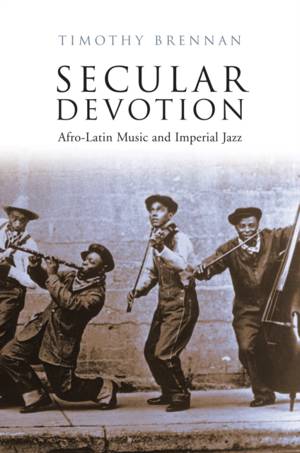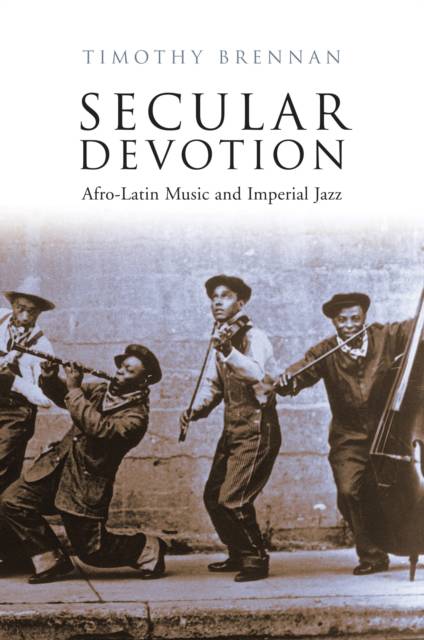
- Afhalen na 1 uur in een winkel met voorraad
- Gratis thuislevering in België vanaf € 30
- Ruim aanbod met 7 miljoen producten
- Afhalen na 1 uur in een winkel met voorraad
- Gratis thuislevering in België vanaf € 30
- Ruim aanbod met 7 miljoen producten
Zoeken
€ 28,45
+ 56 punten
Omschrijving
Popular music in the Americas, from jazz, Cuban and Latin salsa to disco and rap, is overwhelmingly neo-African. Created in the midst of war and military invasion, and filtered through a Western worldview, these musical forms are completely modern in their sensibilities: they are in fact the very sound of modern life. But the African religious philosophy at their core involved a longing for earlier eras--ones that pre-dated the technological discipline of labor forced on captive populations by the European occupiers. In this groundbreaking new book, Timothy Brennan shows how the popular music of the Americas--the music of entertainment, nightlife, and leisure--is involved in a devotion to an African religious worldview that survived the ravages of slavery and found its way into the rituals of everyday listening. In doing so he explores the challenge posed by Afro-Latin music to a world music system dominated by a few wealthy countries and the processes by which Afro-Latin music has been absorbed into the imperial imagination.
Specificaties
Betrokkenen
- Auteur(s):
- Uitgeverij:
Inhoud
- Aantal bladzijden:
- 290
- Taal:
- Engels
Eigenschappen
- Productcode (EAN):
- 9781844672912
- Verschijningsdatum:
- 1/10/2008
- Uitvoering:
- Paperback
- Formaat:
- Trade paperback (VS)
- Afmetingen:
- 156 mm x 233 mm
- Gewicht:
- 480 g

Alleen bij Standaard Boekhandel
+ 56 punten op je klantenkaart van Standaard Boekhandel
Beoordelingen
We publiceren alleen reviews die voldoen aan de voorwaarden voor reviews. Bekijk onze voorwaarden voor reviews.











